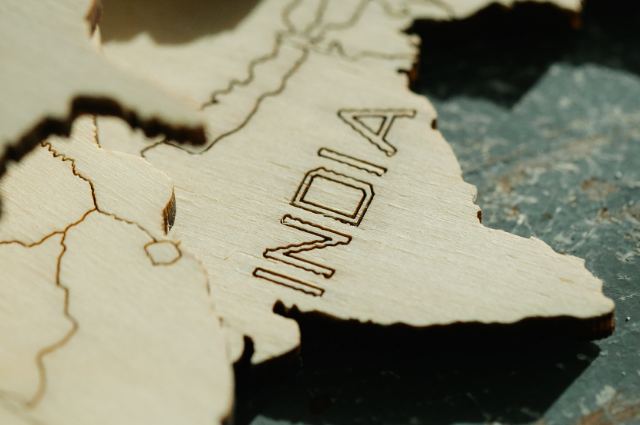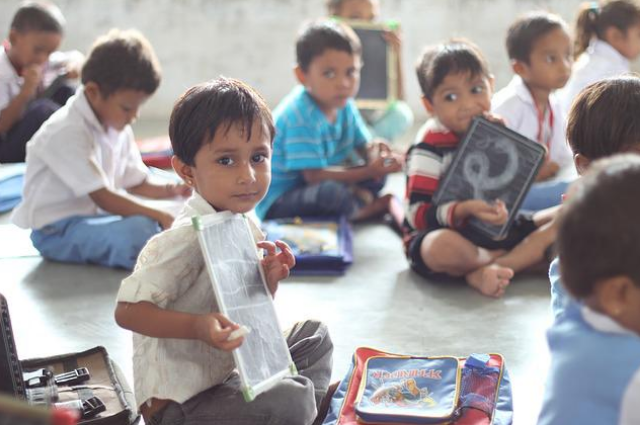
Indian Democracy: Multi-party political culture is a unique pillar of Indian democracy. A plethora of regional parties dot the Indian political landscape today, each one of them playing an important role in shaping the future of society. This plurality also shapes the mindset of the Indian electorate in a big way. Strangely, the same individual may not vote for the same party on the same day, if polls are held for both state and the center. Surprised?
The functioning of India's democracy can become an awesome example to the world if the right mix of differing ideologies springs up to define good governance. The onus lies on people, on their prevailing perception of the parties they vote for, on the existing socio-political situation as well as on the integrity with which our political parties work and show results.
Corrupt-free Political System: What we emphasize on the corruption-free political system in the country wherein all political parties including big and small, take the responsibility of conducting themselves with a high level of honesty and transparency.
Healthy and robust societies: Healthy and robust societies need a conducive environment to grow and prosper. Political parties play a very significant role in shaping the future of the country. This book provides an analytical insight into the broad framework of different national and regional political parties and the way these parties view the problems. This concise collection of crisp write-ups on Indian politics and its impact on fast-changing societies provides a clear picture of the existing scenario. This is also a commentary on the perception-action components of the major political players in the field.

The Role of Youth in Future Politics:
More than 50 percent of our nation’s population is below 25 years of age and 65 percent is about 35 years. As per a recent report, barely 6 percent of the leaders and ministers in the Indian Govt. are below the age of 35 years. This is a saddening fact to know that, inspite of talent, knowledge, and resources, the youth seldom show any interest in politics. We take great pride that the youth of our nation have surged ahead, becoming successful global entrepreneurs, scientists, and CEOs in their respective areas of expertise, except in politics.
The active participation of youth in the present political setup is the need of the hour. We know the reasons for their disinterest in politics, however, they passively vent their anger and frustration via social networking sites. They cannot bear the injustice incited on the commoners; hence they use online platforms so that the concerned officials hear their voices and wake up to resolve the issues. Their humanitarian concern for the needy is reflected by the same. At the same time, my perception is that, if the youth wholeheartedly join politics unconditionally, we can visualize a drastic change in our existing political setup. I believe the systems will one day reflect communal harmony, economic stability, and corruption-free administration. The dreams of the common man will be accomplished, towards building a better and more refined society.
Good Governance: The youth, with their global vision and innovative ideas and ideals, can give us clean and effective governance in the twenty-first century. We hope that our views and opinions will enlighten at least a few young noble minds, who intend to bestow on us “GOOD GOVERNANCE”. Their participation in future politics will create an impact in visualizing a corrupt-free India. We can proudly walk our Nation forward with dignity into the twenty-first century with greater transparency and accountability and emerge as a developed country shortly.
Accountability to the Voters: There has to be some mechanism to curb such politicians who make fake promises and must stand accountable to the people. Even the promises printed in each party's manifesto must be pondered upon, for the welfare of the people.
First five years of their tenure the governments are doing their best but after the second term they are worried about their seat and their party prospects and instead of concentrating on the welfare of the people as a whole, unfortunately, they are targeting only the opposition and selected individuals by which sending a wrong message to the voters. The voters are silent observers and they react at the proper time to teach befitting lessons to the Politicians.
The most important fact is that the Government should be held accountable during his five-year tenure. They should ensure that the government funds are judiciously spent and the balance sheet should be fair enough with income and expenditure. Voters should have the privilege to question the elected representative if they are unable to keep up with their poll promises.
The balance between welfare ad development programs: We need welfare programs as well as developmental plans, the leader whosoever maybe should not neglect these and try to strike a balance between the welfare programs and developmental schemes.
Voters should have the privilege to question the elected representative if they are unable to keep up with their promises. It is the need of the hour that we better our constitution by giving special powers to the constituency to dismiss their representative from power if his performance is dismal.

Neglected Health Sector: The National Health committee suggested that the governments devote at least 8% of the budget to health, but in reality is different. Only Delhi (13.7%0, and Kerala (9.1%) are spending a reasonable fraction of the budget while the remaining states do not spend equally well, like India.
Governments must open their eyes and realize that the health sector must be on the top priority list. We rank among the top three countries in the world when it comes to defense spending, and likewise, we must also be number one in health care spending.
It is proposed that at least 2.5% of GDP will be spent on health over the next two years.

The Right of Children to Free and Compulsory Education(RTE): No doubt India has made great strides in improving access to quality education, increasing elementary school enrolment, and reducing the number of out-of-school children. These achievements have been because of the policies and programs such as the Right of Children to Free and Compulsory Education (RTE) Act (2009), and the National Early Childhood Care and Education (ECCE) policy 2013. However, challenges do remain. As of now an estimated 6.1 million children were out of school in 2014 reduced from 13.46 million (2006) (Source: SRI-IMRB Surveys, 2009 and 2014)
What should be of RamaRajyam: We dream of Rama Rajya, as every individual must feel that they are taken care of by the government and should be confident to grow independently. The vision of an ideal society is that no one lives below the poverty line or begs for a meal. Every citizen is entitled to get clean water, food, and shelter and must have a minimum economic activity to sustain themselves. Indian democracy has stood the test of time with numerous challenges and in the process, emerged stronger and wiser.
The Concern of the Intelligentsia:
The Political parties for the sake of power introduce welfare programs that make the people lethargic as they lose their perspective and depend entirely on these welfare schemes.
In the present times, the aspiring voter expects genuine transparency in governance, openness in the administration, and accountability among politicians. In any state, a responsible opposition is also the need of the hour.
The Role of Governments: The State and Central governments should work on the modalities of Compulsory Free education for all ( 6 – 14 years ) of age and also on providing free medical services for all citizens of India as being the top priority of the governments. The call of the hour is to create basic medical awareness not only on COVID-19 But also on emerging mutant viruses. The loss of lives has stunned the people of our nation and the entire world.

Gandhi’s views on Village Development: Gandhi used to say, if the village PERISHES, INDIA WILL PERISH TOO. The people should sustain themselves and become independent to generate their resources as Mahatma Gandhi was particular about the village development and he was particular about the cottage, small scale, and household industries. Every village should be self-sufficient therefore, we have to concentrate on the village being self-contained, manufacturing mainly for use. The Revival of the villages and small towns can be possible only if we stop further exploitation of villages and small towns.
